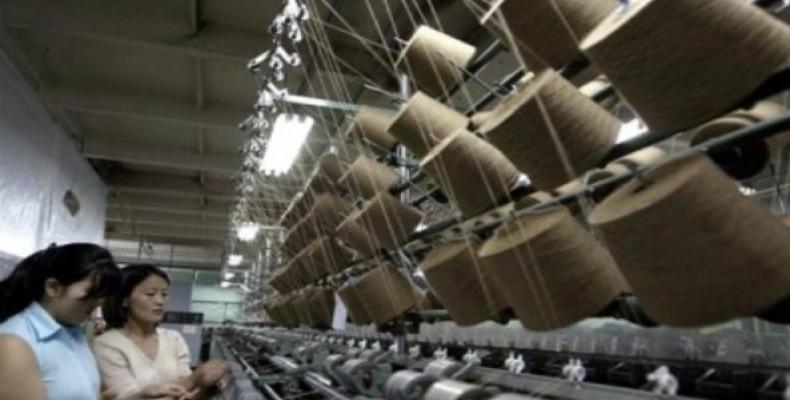Guatemala City, December 16 (teleSUR-RHC)-- Various labor and women’s rights organizations in Guatemala have expressed strong disagreement with an employment bill recently introduced in Congress that activists have branded the “Maquila Bill.”
“Maquila” or “maquiladora” (assembly plants) refers to factories located near the U.S. border with Mexico, where multinationals exploit cheap labor to manufacture products they export abroad.
“We need to tell Guatemalans that this bill does not serve their interests,” Maritza Velasquez, president of Atrahdom (Women’s Association of Housekeepers and Maquila Workers), told teleSUR. “The bill grants multinationals, especially in the clothing and textile industry, massive tax reductions on their profits on exportation, which will have a direct impact on the funding of social programs,” she warned.
Guatemala is one of the poorest and most unequal countries in the region. Last week, the National Statistics Institute announced that the country's poverty rate has skyrocketed over the past eight years, witnessing an eight percent rise from 51 to over 59 percent. The news provoked outrage on social media, with users slamming the country’s elite for corruption and the implementation of neo-liberal policies.
Besides the Maquila Bill, Velasquez also denounced current work conditions in the textile sector, where women represent the majority of the labor force. Not only are textile workers “legally” paid below the minimum wage (less than $9 a day), she said, but employers frequently violate workers’ rights and especially the rights of women.
For instance, employers within the sector often refuse to remunerate overtime, fail to offer social security and health coverage, and rarely respect maternity leave. Discrimination against women has also increased in the textile sector. While women used to represent over 90 percent of the labor force in the industry, this number has now decreased to about 75 percent due to the “risks” of pregnancy, added Velasquez.
Many of these violations have been reported to courts and are currently under investigation, as labor unions and judges have begun collaborating more closely, explained Velasquez. However, she condemned the Ministry of Work and Economy for inaction and failing to investigate reports of violations
The organization’s leader also called on newly-elected President Jimmy Morales, who will begin his term in January, to “better value human capital” in the economy and closely monitor the enforcement of labor laws.
Atrahdom representatives will be meeting members of the Labor Commission in early January in order to convey their demands to Congress.


